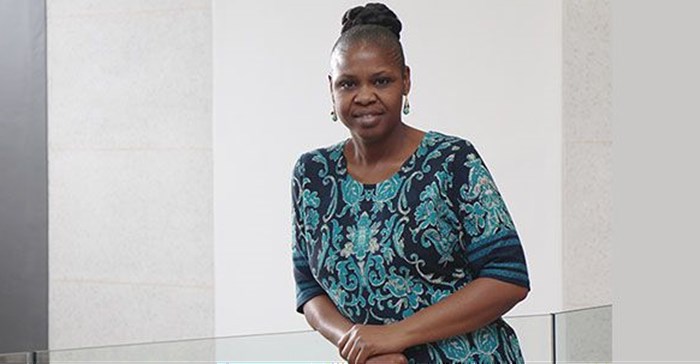Vaccine hesitancy is a complex phenomenon that needs to be understood within the specific context it occurs. This is according to Elizabeth Oduwole, a PhD student in the Department of Global Health's Division of Health Systems Strengthening and Public Health, who recently presented the proposal for her study at the Annual Academic Day of the Faculty of Medicine and Health Sciences, Stellenbosch University.

Elizabeth Oduwele
Oduwole's presentation was entitled Investigating vaccine hesitancy and validating a measuring tool in the Western Cape Province. Her study looks at understanding some of the reasons for vaccine hesitancy in the Western Cape and aims to answer three questions:
- What are the major causes and drivers of vaccine hesitancy in the province?
- What measuring tools exist?
- Are the survey tools valid in the context and setting?
She pointed out that there are currently vaccines available for 25 vaccine-preventable diseases, of which 13 are routinely administered in South Africa in accordance with the Expanded Programme on Immunisation. Vaccination progress in many countries have stalled or regressed in recent years due to a number of reasons. These include issues to do with resource constraints such as missed opportunities for vaccination; vaccine stock-outs and programme and infrastructural challenges; and issues to do with personal choice and vaccine hesitancy.
“The Western Cape is among the best provinces in the country in achieving vaccination coverage but is still below the national target of 92% coverage," Oduwole said.
“Recent outbreaks of vaccine-preventable diseases like measles in the Western Cape show that there is definitely some change afoot and some of this is undoubtedly due to increased hesitancy," she added.
“The full extent of the role of vaccine hesitancy in this is not known but needs to be studied within the specific context in order to develop successful interventions," she said.
Vaccine hesitancy can be viewed on a continuum, from accepting all vaccines, to only accepting some, to refusing all.
Deeper understanding
The study incorporates a scoping review which will look at currently available tools to measure vaccine hesitancy; a data-collection phase incorporating interviews with health service providers which will include both those doing infant vaccination as well as travel clinics that vaccinate adults; and an exercise to validate an existing tool.
The aim of the study is to contribute to the body of knowledge on vaccine hesitancy, to provide a deeper understanding of the problem within the Western Cape, and to propose contextualised solutions where possible.
Oduwole also highlighted the unique situation where South Africa, as a resource-constrained setting, has both practical access-based issues when it comes to vaccination as well as issues related to decision making often associated with higher-income countries. She also referred to the important role and widespread influence of anti-vaccination groups on social media.


























